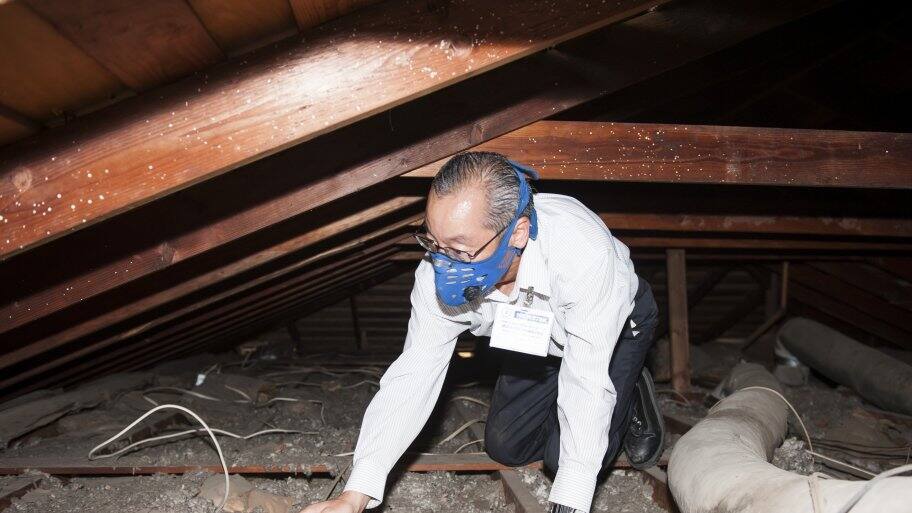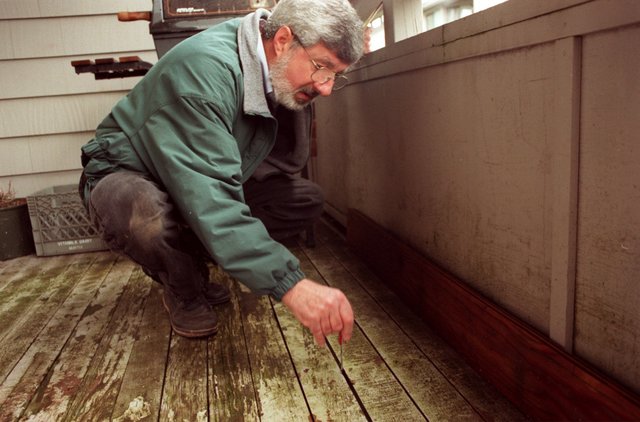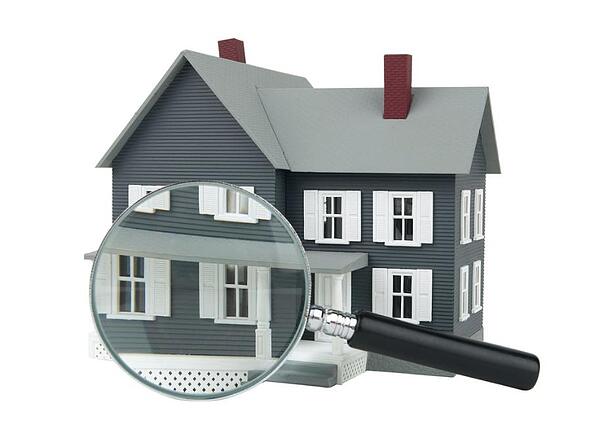Things to Check Before a Home Inspection
Knowing what issues might come up during a home inspection can help alleviate that anxiety. While under no circumstances should you make an effort to cover up an existing problem, the following tips can serve as a guide to help prepare you and your home for a home inspection.
A home inspection of the roof
If you’re curious about the condition of your home’s roof, do yourself a favor: Do not ask your insurance company to come and look at the roof. Even if there is no damage, requesting an insurance company to inspect your roof may be reported as a claim.
Inspecting the HVAC system
The heating and air conditioning systems are at the top of the list for almost every homebuyer. If your home has older heating or A/C units, it can be well worth the money to have a reputable, licensed HVAC company or technician perform a tuneup or regular HVAC maintenance before your home is inspected.
Checking the electrical system
A working electrical system is invaluable to any home, but electricity is dangerous and it should be treated with the respect it deserves. For that reason, any work or evaluation to your home’s electrical system should be conducted by a licensed electrician.
A home inspection of the plumbing system
More and more homeowners are hiring plumbers and drain clearing services to inspect the sewer lines commonly found in older homes to alert them to possible future problems. While that’s definitely an option, it can be somewhat costly.

Things Every Home Inspection Client Should Know
Almost Anything Can Be Fixed
There are a few things that terrify a client when they hear them: mold, asbestos, safety. Yes they can be scary but no scarier than a furnace that needs replacing or windows that need repairs and painting.
Not Everything Will Get Fixed
Right after I tell my clients that my wife still loves me, even with my issues, I qualify that by saying, “Some things will never change and thank goodness she understands.”
Can not Predict the Future
I really wish could tell you how long the roof will last or when the furnace will need to be replaced. It’s just not possible. can give you an idea how long they normally last and what kind of condition they are in now. But no one can predict the future.
Will Not Find Everything Wrong in The Home
are here to find the big stuff. Things of consequence like water, safety, structure. will not find or report on everything wrong in the home. That is just not what are here for
Get Your Heart and Head in Check
It can be incredibly tough to step back from your love of the home to see it as an investment. Once you see our list of repairs and observations, it can be a bit overwhelming. Take a deep breath.

home inspection mistakes buyers and sellers make
A home inspection is an assessment of a home’s condition. Home inspectors not only identify problems with houses, they can give buyers information that will help them with the upkeep.
Not researching the inspector
Too many buyers and sellers hire whoever is recommended to them without doing any research. The inspection is only as good as the inspector doing it
A few questions to ask:
• How long have you been inspecting homes?
• How many inspections have you done?
• What are your qualifications, certifications and training?
• What was your job before you were a home inspector? (Ideally, your pro was in contracting or building.)
You want a certified professional who stays current. “There’s a lot of stuff you have to know, and you want someone who’s keeping up with ongoing education,” says
The inspection might take an entire morning or afternoon, so set aside enough time. Some inspectors will sit with you afterward to explain things. “Any home inspector who doesn’t let you follow him around? That’s weird. Ask me any question you want,”

How Sellers Can Prepare For A Home Inspection
One of the most common clauses in a residential real estate contract is the home inspection contingency. If included, a home buyer has a specific amount of time (typically 7-10 days after the contract is ratified) to have a licensed professional conduct a home inspection and to either negotiate for repairs or to back out of the contract if they do not like the results of inspection.
If a seller knows what to look for, they can resolve many minor items before the home inspection occurs. While some items identified during the inspection might seem like minor issues individually, collectively, they could add up to major headaches, involving both time and money. So, read on to learn how to sellers can best prepare for a home inspection.
The purpose of a home inspection is to document the overall condition of the property at the time of inspection and to ensure that its major systems and components are working properly. Therefore, the primary thing that an inspector will need is access, including the garage, attic opening, crawl spaces, closets, basement, water heater, electrical panel and other mechanical systems. If the inspector cannot access those areas, they cannot be included in the report, which may raise questions for your buyer.
Prepping the Interior
Test smoke and carbon monoxide detectors and replace any dead batteries
Check all electrical outlets to make sure they are working
Replace any burned out light bulbs and make sure there are light bulbs in all sockets. Any flickering light fixtures can be possible signs of a problem for an electrician to investigate
Fix any leaky faucets and any clogs in the sink drains
Check to make sure that all toilets flush properly
Check to ensure that all appliances are working properly. Clean out oven and stovetop so they can be tested without setting off the smoke alarm
Make sure that all grout and caulking in kitchen and bathrooms is in good repair
Fix doors that don’t close or latch properly
Check to make sure that windows open and close properly
Have remote controls available for ceiling fans, lights etc.
Make sure all utilities are turned on. This includes water, electricity, furnace, A/C and the water heater. You may want to also replace your air filter as they impact the efficiency of your overall HVAC system
If you have a gas fireplace, make sure the pilot light is on
Prepping the Exterior
Clean out the gutters and repair any damages
Check siding and trim and repair any damage as needed
Repair any missing caulking around doors, windows and over nail heads
Repair any damaged or missing roofing
Make sure the garage door is operating properly
Remove any locks on outside gates which prevent full access to the exterior
If you have a septic tank or well in your yard, leave a sketch with its location so the inspector can find it
A Few Other Tips
If something isn’t working properly, it’s best to not try and hide it. Buyers get suspicious when sellers deliberately try to conceal defects. They may see you as dishonest and wonder what else you are hiding.

Home Inspection Checklist
A consumer home inspection checklist does not replace the professional home inspection. You do the consumer home inspection before making an offer to purchase a home. Once you conduct your own consumer home inspection and make a decision to buy a particular home, you will sign a contract and have the home you’ve selected professionally inspected. The professional home inspector gives you an objective and comprehensive report before closing.
Before You Conduct a Home Inspection
Schedule your home inspection during daylight hours. You may want to bring along the following tools.
Consumer Home Inspection Form (follows this introduction)
A powerful flashlight to use in basements and crawl spaces
A stepladder to look in the attic to check insulation, the underside of the roof and indirect lighting fixtures
A tape recorder to record any information too lengthy to note on the inspection form
A circuit tester to check the circuits
Helpful Hints
Plan to go through the home completely twice so you can do an overall analysis. Remember to consider the following when you conduct your home inspection so you can effectively evaluate the home:
The existing condition of all systems and equipment
Any unusual features that may increase or decrease the appeal of the home
Any problems or features you want your professional home inspector to check out
The quality and condition of the structure
Routine house cleaning and maintenance items: paint, furnace filters, gutters, caulking in bathrooms, landscaping, floors, appliances, walls, etc
What to Expect
This checklist will give you the information you need to identify a home’s distinguishing features that make it attractive for purchase
Estimate the costs and identify solutions for any problems uncovered during the consumer home inspection
Provide a basis for comparing homes you are considering buying
INTERVIEW THE OCCUPANTS
It’s possible to collect a tremendous amount of useful information before you conduct the consumer home inspection by sitting down with the sellers or occupants. Ask open-ended, leading questions. You may begin by asking the occupants:
Are you aware of any termite damage or activity in your home? Virtually all homes sold today require a termite inspection and certificate so a complete history of any damage, treatment or repair is important to know from the start.
Does your home have any existing or repaired structural problems, such as cracks in the basement floor, rotted floor joists or settlement cracks in the walls?
Do you ever have moisture in your basement? A typical concern when buying a home is a wet basement or crawl space. It’s important to learn about a wet basement early so that it can be repaired or you can negotiate the price of repair before you buy the home.
Have you seen any signs of a leaking roof? If the roof has leaked in the past, it’s important to determine whether repairs were made or a new roof was installed. If the home has an asphalt/fiberglass shingle roof, which usually lasts 15 to 18 years and the home is 17 years old, ask if the roof has been replaced recently. A professional home inspector can determine this for you.
Have you experienced any problems with the heating or air conditioning systems? Find out the ages of the heating and cooling equipment and any problems the occupants may have had with the systems.
Have you tested your home for radon recently? The risks from radon gas vary greatly in different parts of the country. Contact the local environmental protection agency to obtain information about the presence of radon in the area.
Is the electrical service satisfactory? Find out the capacity of the electrical service and whether the occupants have had problems, such as fuses blowing frequently, circuits overloading, outlets not working or lights flickering when appliances are turned on.
What is the condition of the plumbing system? Find out about the water pressure, whether the plumbing leaks, whether there’s enough hot water, the age of the water heater and whether the system has been updated in any way.
Have you remodeled or made improvements to your home? If improvements have been made to the home, inquire about the competence of the
individual or company who provided the service. Check the credentials of the person who made the improvements, to make sure he or she is a licensed builder, owner or technician.
Was your home built before 1978? Before 1960? Some homes built before 1978 and many homes built before 1960 contain lead-based paint. If the paint is chipping, peeling, cracking, flaking etc., and contains lead, it may be dangerous especially for children younger than 7. You may wish to inquire specifically if the home contains lead paint or if it has ever been tested for lead paint.